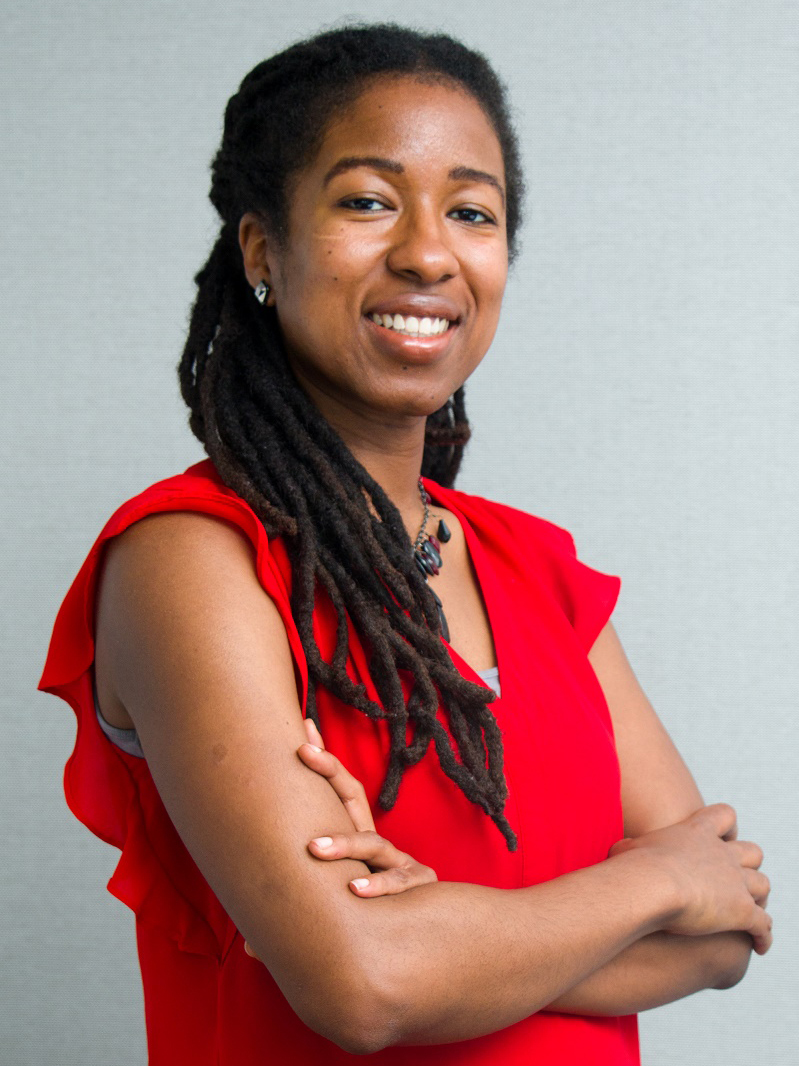Kia Jackson, PhD, Pharmacologist
“I believe the multidisciplinary work environment is unique to FDA. Aside from working with other pharmacologists, I regularly work with scientists and medical professionals who are outside of my area of expertise. I also have many opportunities to work with non-scientists, including lawyers, individuals in the health communication field, and those who work in regulatory compliance..”—Kia Jackson, PhD, Pharmacologist, Office of Science, Center for Tobacco Products
Q: Why did you seek a career at FDA?
Kia Jackson: I wanted to apply the basic science research I was doing in academia to "real-world" situations that directly affect public health. The job security and great work-life balance were also very attractive!
Q: What does FDA offer that you can't find elsewhere?
KJ: I believe the multidisciplinary work environment is unique to FDA. Aside from working with other pharmacologists, I regularly work with scientists and medical professionals who are outside of my area of expertise. I also have many opportunities to work with non-scientists, including lawyers, individuals in the health communication field, and those who work in regulatory compliance. Since we all speak different "languages," this provides many opportunities to strengthen my communication skills and my understanding of my own work by having to translate complex topics to non-pharmacologists and non-scientists. I am also afforded the opportunity to understand how the contributions of others who work at my product center fit into the work we do on a daily basis.
Q: What do you value most about working at FDA?
KJ: I value the feeling that my work genuinely makes a difference. I've had the opportunity to see how my work directly applies to fulfilling our mission. Working in tobacco product regulation is difficult because we are tasked with regulating a product that has no benefit to public health. My office provides the science to support policies that keep tobacco products off the market that are attractive to youth and that may impede cessation attempts among current smokers. My office also provides the science that supports disseminating information to the public in the form of public campaigns and commercials about the harms of tobacco products. It has truly been a rewarding and fulfilling experience to see the efforts of my work in "real-world" situations.
Q: What surprises you most about working at FDA?
KJ: I was surprised and highly appreciative of the diverse work environment at FDA. In addition to the diversity across educational backgrounds, I have worked with people of all races/ethnicities, sexes, and ages, as well as individuals with disabilities. It really makes me feel that I am an important part of the work we do here.
Q: How is the science conducted at FDA different from science conducted at NIH (or other federal agencies), academia, or industry?
KJ: FDA is focused on regulatory science. Although we do use basic science findings from academia and NIH for rationale to support why we should be concerned about various aspects of tobacco products (such as nicotine levels, toxicity, or flavors), the science we conduct at FDA must translate general scientific knowledge into specific scientific findings that serve as actionable information for regulatory decisions and actions. We are tasked with evaluating distinct situations to determine the impact on public health.
Q: What piece of advice would you give to an FDA job seeker?
KJ: Don't give up searching and applying! It can be discouraging trying to get a job at FDA, especially coming from academia, because you may feel as though your expertise cannot be applied to regulatory activities. In reality, my time spent working in academia before coming to FDA gave me the skill set and foundation I needed to excel at my job. It helped me to connect with others at FDA who could walk me through the application process (USAJobs.gov) and who could explain how the work I was doing in academia could be applied to the application questionnaire. In this way, I was able to better tailor my resume to fit the requirements for the job. Going to job fairs, connecting with FDA staff at conferences, and reaching out to FDA staff via LinkedIn for informational interviews does help. Be proactive!


